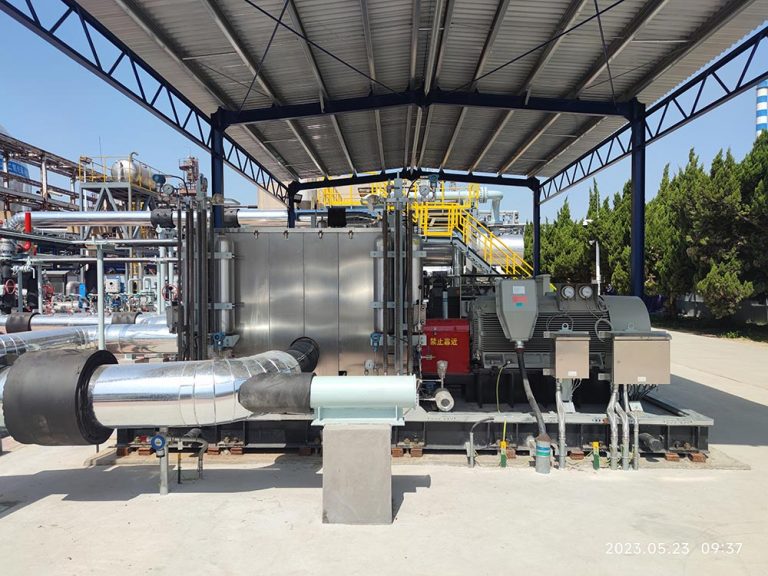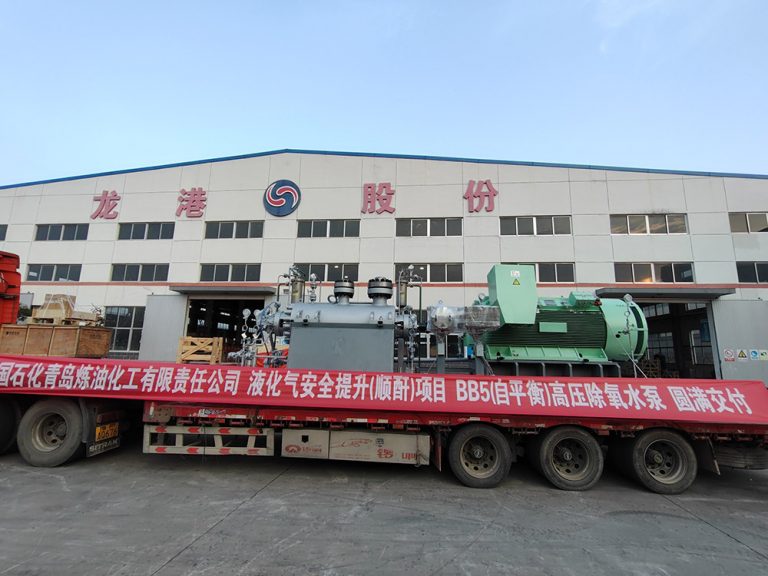When it comes to handling fluids in settings effectively and cost-efficiently while ensuring safety measures are met accordingly is vital to consider the right pump for the job at hand; a key decision often revolves around selecting either API (American Petroleum Institute) pumps or non API pumps for different industrial applications based on their unique design features and performance capabilities. Both types of pumps are commonly utilized in industries but serve distinct purposes and are suited for specific applications; understanding the discrepancies between API pumps and non-API pumps can empower you to make informed choices that align with your operational requirements effectively.

Understanding API Pumps: Precision and Dependability
API pumps are designed and manufactured according to standards set by the American Petroleum Institute. These standards, such as API 610 for centrifugal pumps, ensure these pumps meet defined criteria for design, materials, and testing, making them dependable and durable in demanding environments.
Characteristics of API Pumps:
Standardization in Practice; API guidelines play a role in shaping the development process of pumps by outlining the necessary steps for design and testing to guarantee their durability under demanding environments.
- API pumps often utilize materials like steel and special alloys that are chosen for their durability under conditions of pressure and temperature as well as resistance to corrosive fluids.
- Lasting Construction; API pumps are designed with durable features like mechanical seals and specialized bearings to resist corrosion and ensure longevity.
- The pumps in the API are thoroughly tested through performance checks and mechanical running tests to meet industry standards and requirements.
- Sealing methods are commonly used in these pumps to minimize leaks when dealing with corrosive liquids.
Applications of API Pumps:
API pumps are commonly utilized in sectors that demand consistency and efficiency in environments, such as the following industries;
- Oil and gas play a role in extraction operations as well as in the transportation and refining processes for use in drilling rigs offshore platforms and pipelines.
- Petrochemicals play a role in the processing of crude oil and its derivatives.
- Chemical processing is employed for the efficient transportation of corrosive substances.
- Applications in demand are set up to manage challenging operational situations effectively.
Understanding Non-API Pumps: Adaptability and Value
Non-API pumps do not have to follow the rigorous guidelines as API pumps do; they offer a more adaptable and budget-friendly option instead. These pumps are specifically created for tasks and can easily adjust to various fluid-handling situations.
Characteristics of Non-API Pumps:
- Versatility in Design; Pumps that are not dependent on APIs can be customized to suit requirements in applications. Such as managing various types of fluids or functioning in diverse environmental settings.
- Budget-Friendly Option; They usually come with an upfront price tag compared to API pumps which makes them a suitable choice for projects on a tight budget.
- Non API pumps with constructions often utilize everyday materials and prioritize cost effectiveness over high performance capabilities.
- Specialized designs are common for these pumps as they are customized for applications and sectors to offer efficient solutions for less extreme situations.
- * Simple Sealing Methodology. These pumps typically utilize sealing techniques in contrast to the advanced technologies found in API pumps.
Applications of Non-API Pumps:
Non-API pumps are commonly employed across industries where challenging conditions are not a significant factor. Some of these sectors. Are not limited to;
- In industrial settings like moving water or diluting oils and handling safe fluids under normal conditions.
- Water Management involves the transfer of water resources for purposes such as wastewater treatment and irrigation practices.
- HVAC systems refer to the circulation of fluids to regulate temperature for both heating and cooling purposes.
- Handling liquids and ingredients in the food and beverage industry.
Distinctions: API vs. Non-API Pumps
The variances in API and non-API pumps stem from their structure differences in design materials and performance levels for uses.
Design and Construction:
- API pumps are built with a focus on durability and reliability by utilizing premium materials that can endure conditions such as high temperatures and pressures. They incorporate cutting-edge sealing methods and sturdy components in their design.
- Non API pumps prioritize affordability by utilizing designs and frequently employing easily accessible materials suitable for less rigorous uses.
Performance:
- API pumps are crafted to excel in conditions offering improved reliability and efficiency even in high temperatures and pressures thereby minimizing the chances of breakdowns and operational interruptions.
- Suitable for industrial use in less harsh environments are non-API pumps; however,they may not operate optimally when subjected to varying temperatures and pressures.
Material Selection:
- API pumps usually incorporate materials such as steel and special alloys to withstand stresses and chemical reactions effectively.
- Non API pumps may incorporate materials such as plastics and lighter metals or composite materials in their construction.
Maintenance and Dependability:
- API pumps might need maintenance because of their design and performance standards; however, they provide reliability and have a longer lifespan in operation.
- Non-API pumps have levels of reliability based on how they are built and the materials used in their construction. They might need upkeep but could wear out more quickly under tough circumstances.
- API pumps are ideal for operating in demanding conditions with pressure and temperature or in corrosive settings commonly found in industries including oil and gas or petrochemical and chemical processing sectors.
- Non-API pumps are recommended for applications that do not require levels of safety and performance in stressful conditions like general industrial usage or handling water in HVAC systems and industries like food and pharmaceutical sectors.
Cost Analysis: Initial vs. Long-Term
When deciding between API and non API pumps for your needs think about the expenses as well as the financial impact in the long run.
Initial Costs:
- API pumps typically demand an upfront cost because of the need for advanced engineering designs and high-quality materials along with stringent testing criteria.
- Non API pumps usually come at an affordable price point and are favored for projects with budget constraints.
Long-Term Costs:
- API pumps can result in cost savings in the run due to their extended durability and efficiency which require less maintenance.
- Non API pumps could end up costing more in the run because they may require more maintenance and have shorter lifespans which could lead to more frequent replacements.
Making an Appropriate Choice
- Selecting between API and API pumps relies on evaluating your particular needs.
- Before proceeding with the operation of the equipment; 1) Check the characteristics of the fluid being used as well as environmental factors like temperature and pressure. 2) API pumps are ideal for pressure and high-temperature settings; on the other hand, non-API pumps are more adaptable to different operating conditions.
- Take into account the reliability factor by assessing how important the application is and the impact of pump malfunction. API pumps are known for their trustworthiness in environments.
- When considering your budget for the project it’s important to look at both the investment and the ongoing operational and maintenance costs in the long run. Choosing non-APII pumps might seem like an option at first glance; however, API pumps generally offer better overall value in the long term.

Specific Non-API Pumps from Yantai Longgang Pump Industry Co. Ltd.
At Yantai Longgang Pump Industry Co. Ltd. you can find a selection of pumps to meet your industrial needs such as the LCD(BB3) horizontal split multi-stage pump known for its efficiency in handling cooling and heating fluids with minimal maintenance requirements and a durable lifespan in various industrial settings. The pump is equipped with mechanical seals and lubrication systems and can be seamlessly integrated with auxiliary monitoring systems as needed.
Conclusion
When deciding between API and non-API pumps for your application needs consideration of the requirements is crucial. API pumps are designed for accuracy and reliability in environments like the oil and gas industry. On the other hand, non-API pumps provide flexibility and cost-effectiveness for a range of applications with less challenging conditions. It’s essential to take into account factors such as operating conditions, reliability expectations, budget constraints, and customization needs when selecting the pump for your specific requirements. By assessing your requirements and grasping the unique capabilities of each pump model you can confidently choose the best option to enhance efficiency and cut down expenses.
FAQ
What is most important in industrial settings, especially from an API pump in comparison with non-API pumps?
API pumps are designed to the very highest possible standard for design, materials, and testing for strength and dependability under extreme pressure and temperature conditions. Leaks and breakdowns are kept to a minimum, and construction is ideal in very demanding settings related to operations that concern oil and gas, where safety is a huge concern.
Is it possible to use non-API class pumps in applications requiring precision fluid handling?
The non-API pumps can work without problems with other fluid types, but their accuracy may be relatively lower compared to API pumps. Generally, API-certified solutions are highly recommended for those applications which have a particular performance demand or which involve difficult media such as corrosives.
What kind of questions should I be asking in determining what pump will work in the application?
To make an informed choice between API and non-API pumps, consider your operating environment: fluid nature, such as viscosity and or corrosiveness; temperature range, pressure level required; reliability expectation; and financial constraints. A suitable pump-one that will meet both the performance criteria as well as economic goals-effectively would be provided based on your findings.








